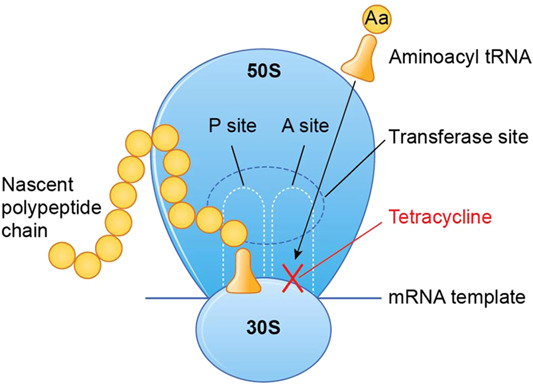Which one of the following types of immunoglobulins is involved in inflammatory and allergic responses?
IgD
IgE
IgG
IgM
The Correct Answer is B
A. IgD: Immunoglobulin D (IgD) is found on the surface of B cells and serves as a receptor for antigen recognition during the immune response. Its exact function is not fully understood, but it plays a role in the activation of B cells.
B. IgE: Immunoglobulin E (IgE) is primarily associated with allergic responses and defense against parasitic infections. When an allergen enters the body, IgE antibodies trigger the release of histamine and other chemicals, leading to allergy symptoms. IgE is also involved in protecting against certain parasites.
C. IgG: Immunoglobulin G (IgG) is the most abundant immunoglobulin in the bloodstream. It provides long-term immunity by recognizing and neutralizing pathogens such as bacteria and viruses. IgG antibodies are involved in secondary immune responses and are transferred from mother to fetus, providing passive immunity.
D. IgM: Immunoglobulin M (IgM) is the first antibody produced during an initial immune response to an antigen. It is effective at agglutination (clumping) of pathogens. IgM antibodies are generally found in blood and lymph fluid and are the first line of defense during infections.
Nursing Test Bank
Naxlex Comprehensive Predictor Exams
Related Questions
Correct Answer is A
Explanation
A. "Tetracycline inhibits protein synthesis."
Explanation: Tetracycline antibiotics interfere with bacterial protein synthesis by binding to the bacterial ribosomes. This binding prevents the attachment of transfer RNA (tRNA) to the messenger RNA (mRNA) complex, effectively inhibiting the production of proteins that are crucial for bacterial growth and replication.
B. "Tetracycline blocks RNA synthesis."
Explanation: This statement is incorrect. Tetracycline primarily affects protein synthesis, not RNA synthesis. It doesn't block the creation of RNA molecules in bacteria.
C. "Tetracycline degrades the bacterial cell wall."
Explanation: This statement is incorrect. Tetracycline antibiotics do not target bacterial cell walls. Agents like penicillins and cephalosporins are examples of antibiotics that disrupt bacterial cell walls.
D. "Tetracycline binds to magnesium ions."
Explanation: This statement is incorrect. Tetracycline does bind to certain metal ions, but it's not primarily through magnesium ions. The binding to bacterial ribosomes is a key mechanism of action for tetracyclines.

Correct Answer is D
Explanation
A. Respiratory Function: Monitoring respiratory function is important for conditions like asthma or chronic obstructive pulmonary disease (COPD). It involves assessing lung sounds, oxygen saturation levels, and breathing patterns. This monitoring is essential to detect any signs of respiratory distress.
B. Cardiac Function: Monitoring cardiac function includes assessing heart rate, blood pressure, and rhythm. It's crucial for patients with heart conditions like heart failure or arrhythmias. This monitoring helps in identifying irregularities in heart function and provides insights into the overall cardiovascular health of the patient.
C. Renal Function: Monitoring renal function involves assessing kidney health, which includes tests like serum creatinine and glomerular filtration rate (GFR). This is vital for patients with kidney diseases or those taking medications that can impact kidney function. Monitoring renal function helps in detecting any signs of kidney impairment or failure.
D. Liver Function: Monitoring liver function involves tests like liver enzymes (AST, ALT), bilirubin levels, and albumin levels. This is essential for patients taking medications that can affect the liver, such as certain antifungals, statins, or pain relievers. Monitoring liver function helps in identifying liver damage or dysfunction early on.
Whether you are a student looking to ace your exams or a practicing nurse seeking to enhance your expertise , our nursing education contents will empower you with the confidence and competence to make a difference in the lives of patients and become a respected leader in the healthcare field.
Visit Naxlex, invest in your future and unlock endless possibilities with our unparalleled nursing education contents today
Report Wrong Answer on the Current Question
Do you disagree with the answer? If yes, what is your expected answer? Explain.
Kindly be descriptive with the issue you are facing.
